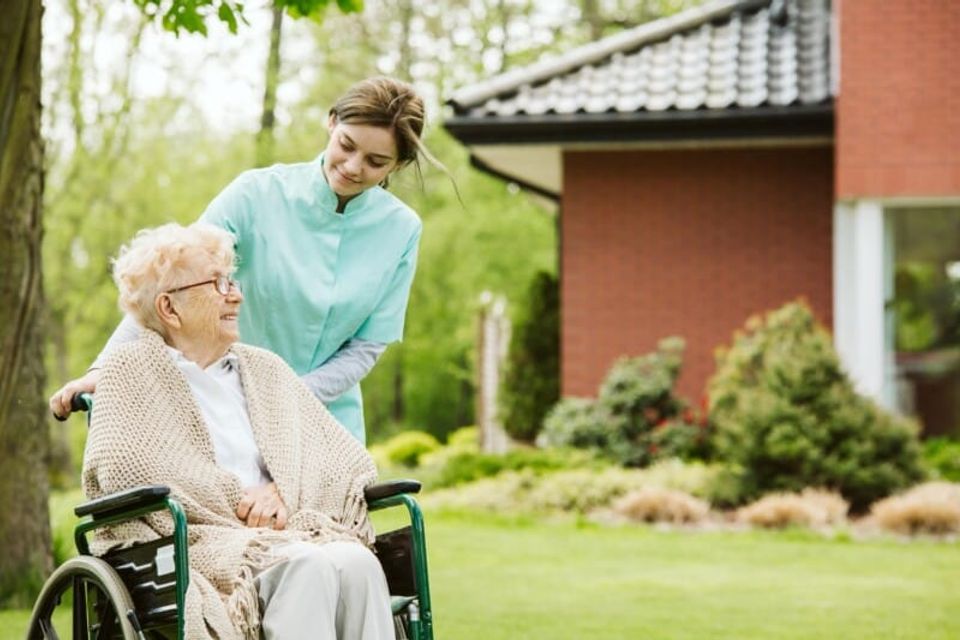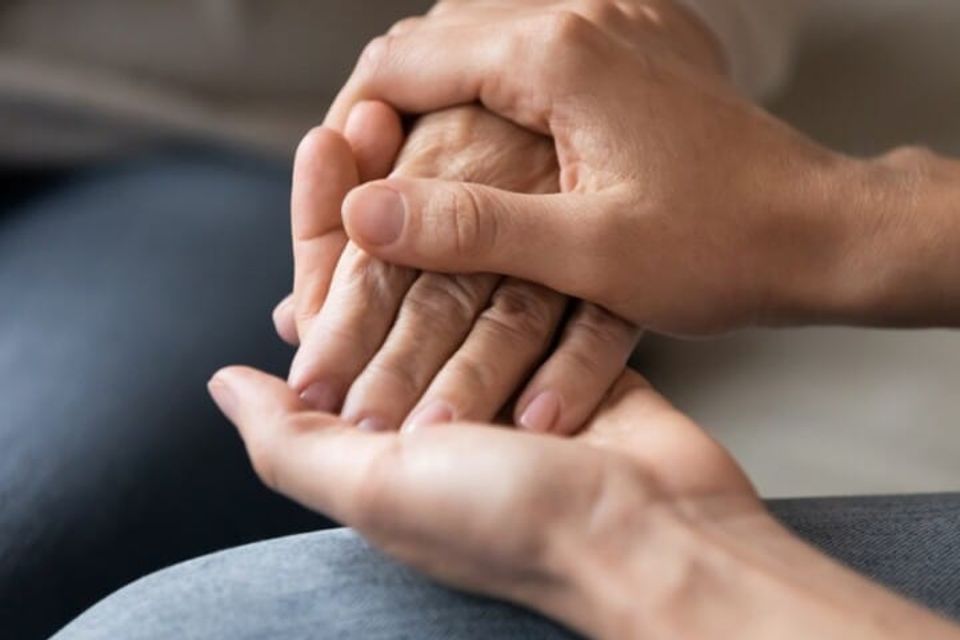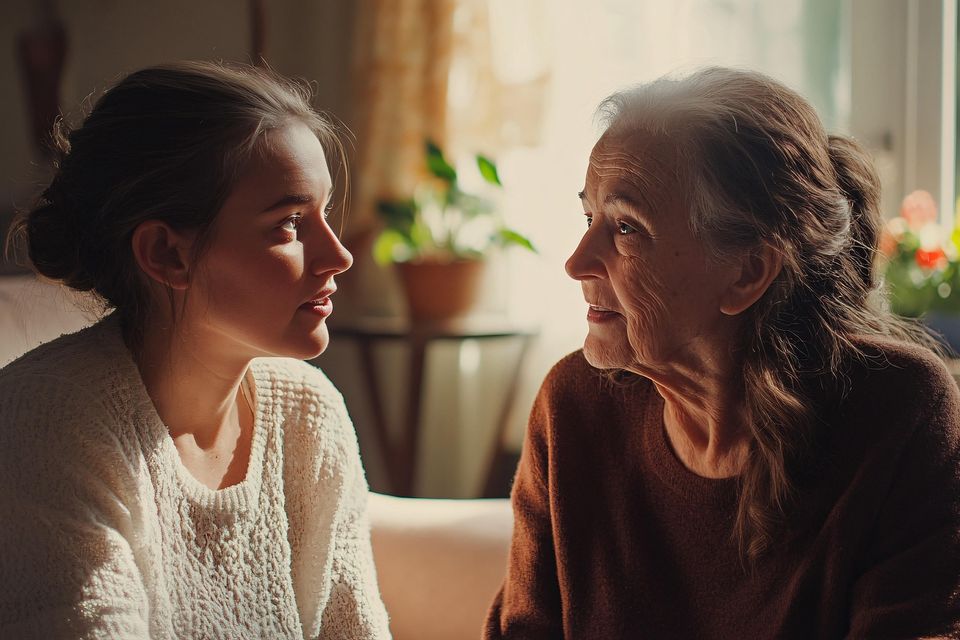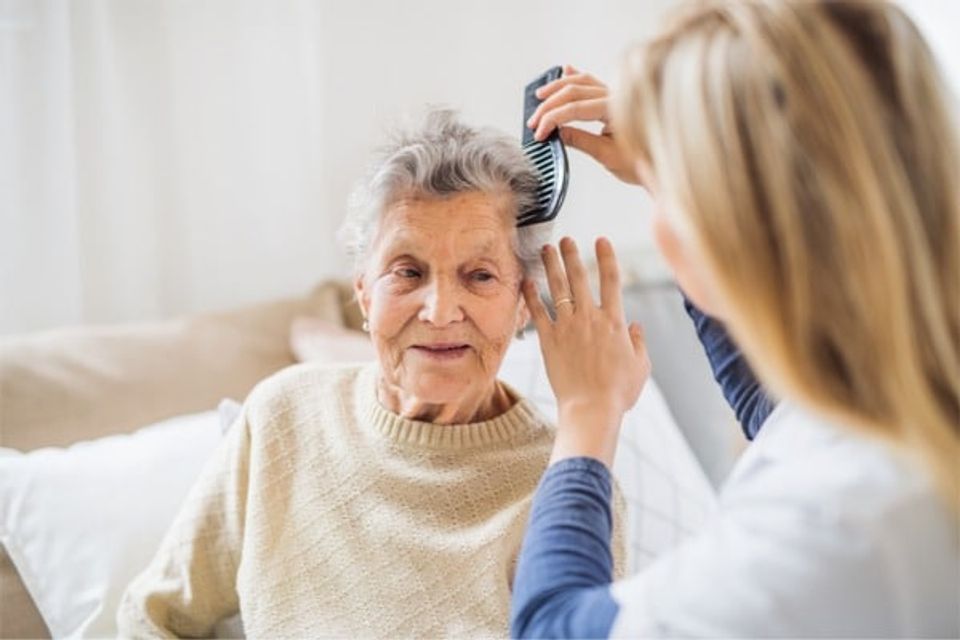
Mental Illness and Dementia: How to Tell the Difference
By Dr. Tiney Ray Published On: March 20th, 2023
How Cognitive Decline Can Affect Mental Health
When it comes to mental illness and dementia, people commonly think dementia is a particular type of mental illness. That’s understandable, since both of these can manifest in similar ways, but there are crucial differences to understand so you can provide the best care for your elderly loved one.
Many illnesses become more prevalent as a person ages; but, according to the CDC, mental illness does not. Due to the stigma associated with mental health, seniors often delay seeking help when they’re suffering from something like depression or anxiety. Determining whether your loved one is experiencing the natural effects of aging, a decline in mental health, or early stages of dementia can prove difficult.
Sometimes, seniors suffer from both dementia and mental illness at the same time.
Gaining a better understanding of how mental illness can manifest with symptoms that mimic dementia and vise versa as well and knowing the crucial differences is key to getting proper treatments.
Mental illness with Alzheimers and other types of dementia
Mental illness with Alzheimers is not uncommon, especially in the early stages of the cognitive disorder. Depression is the most common mental illness that manifests along with various forms of dementia. The CDC states that 50% of elderly adults with Alzheimers also suffer with serious depression symptoms and that 25% of these adults experience major depressive symptoms. Depression is not a normal consequence of aging. Some research suggests a biological connection between clinical depression and Alzheimers.
It’s crucial to understand whether your loved one suffers from both a mental illness and early stage dementia, or just one of these conditions. An experienced geriatric health care provider can make an accurate diagnosis. According to Today’s Geriatric Medicine, certain treatments, based on accurate diagnosis, have been shown to improve cognitive function.
Common symptoms of dementia and other concerns
Knowing how to spot common symptoms of dementia is the first step toward getting a diagnosis and treatment plan that may decrease suffering and improve cognitive health. In addition to depression, other mental health disorders can occur jointly with conditions like Alzheimers. These include anxiety disorders and more severe psychotic conditions, such as schizophrenia.
Common symptoms of dementia sufferers:
Not only do these symptoms negatively impact the patient, they can have such consequences for the caregiver.
How to tell the difference
Knowing how to tell the difference between a mental illness and dementia is key. When thinking of dementia, people often lump it in with mental illness, since it involves brain function. But there are some important differences that a geriatric health care specialist must consider when making an accurate diagnosis.
Even though dementia does impact mental health, it is not a mental illness. It’s a brain disorder that may cause a host of symptoms, including profound memory loss and difficulty with communication. Sadly, misdiagnosis of dementia as a mental illness occurs far too often. This occurs because some behaviors associated with mental illness also manifest with dementia.
Once your elderly loved one receives the correct diagnosis, he or she can begin receiving treatment protocols that will best address the manifesting symptoms.
Lyght Bulb Moments is here to help. If you’re struggling with the changes to your everyday life and the struggles your loved one is experiencing, reach out for help from the compassionate professional staff at Lyght Bulb Moments.
Call today for a free, no obligation consultation.
How Cognitive Decline Can Affect Mental Health
When it comes to mental illness and dementia, people commonly think dementia is a particular type of mental illness. That’s understandable, since both of these can manifest in similar ways, but there are crucial differences to understand so you can provide the best care for your elderly loved one.
Many illnesses become more prevalent as a person ages; but, according to the CDC, mental illness does not. Due to the stigma associated with mental health, seniors often delay seeking help when they’re suffering from something like depression or anxiety. Determining whether your loved one is experiencing the natural effects of aging, a decline in mental health, or early stages of dementia can prove difficult.
Sometimes, seniors suffer from both dementia and mental illness at the same time.
Gaining a better understanding of how mental illness can manifest with symptoms that mimic dementia and vise versa as well and knowing the crucial differences is key to getting proper treatments.
Mental illness with Alzheimers and other types of dementia
Mental illness with Alzheimers is not uncommon, especially in the early stages of the cognitive disorder. Depression is the most common mental illness that manifests along with various forms of dementia. The CDC states that 50% of elderly adults with Alzheimers also suffer with serious depression symptoms and that 25% of these adults experience major depressive symptoms. Depression is not a normal consequence of aging. Some research suggests a biological connection between clinical depression and Alzheimers.
It’s crucial to understand whether your loved one suffers from both a mental illness and early stage dementia, or just one of these conditions. An experienced geriatric health care provider can make an accurate diagnosis. According to Today’s Geriatric Medicine, certain treatments, based on accurate diagnosis, have been shown to improve cognitive function.
Common symptoms of dementia and other concerns
Knowing how to spot common symptoms of dementia is the first step toward getting a diagnosis and treatment plan that may decrease suffering and improve cognitive health. In addition to depression, other mental health disorders can occur jointly with conditions like Alzheimers. These include anxiety disorders and more severe psychotic conditions, such as schizophrenia.
Common symptoms of dementia sufferers:
- Irritability
- Restlessness (i.e. pacing, fidgeting)
- Feeling sad and hopeless
- Increased incidents of aggression
- Hypersomnia or insomnia
- Apathy toward activities previously enjoyed
- Exhibits signs of delusions
- Expresses unfounded suspicions or paranoia
- Hallucinations (visual or audio)
- Refuses to cooperate with caregiver
- Anxiety about normal activities
- Difficulty communicating
- Confusion
- Increasing issues with memory
- Personality and emotional changes
Not only do these symptoms negatively impact the patient, they can have such consequences for the caregiver.
How to tell the difference
Knowing how to tell the difference between a mental illness and dementia is key. When thinking of dementia, people often lump it in with mental illness, since it involves brain function. But there are some important differences that a geriatric health care specialist must consider when making an accurate diagnosis.
Even though dementia does impact mental health, it is not a mental illness. It’s a brain disorder that may cause a host of symptoms, including profound memory loss and difficulty with communication. Sadly, misdiagnosis of dementia as a mental illness occurs far too often. This occurs because some behaviors associated with mental illness also manifest with dementia.
Once your elderly loved one receives the correct diagnosis, he or she can begin receiving treatment protocols that will best address the manifesting symptoms.
Lyght Bulb Moments is here to help. If you’re struggling with the changes to your everyday life and the struggles your loved one is experiencing, reach out for help from the compassionate professional staff at Lyght Bulb Moments.
Call today for a free, no obligation consultation.

















